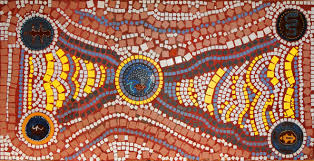
November 10, 2015, by criticalmoment
Centre for Critical Theory Visiting Speaker: Claire Blencowe (25/11/15)
Wednesday November 25th
A41 Sir Clive Granger Building
5.00 pm
Ecological Attunement in a Theological Key: Adventures in Anti-Fascist Aesthetics Claire Blencowe (Warwick)
Isabelle Stengers has posed the question of how we are to relate to the climatic and economic catastrophes of our present times in a mode that resists ‘the coming barbarism’ – the barbarism that is produced by the history of capitalism and ‘progress’. The old ultimatum between the commons and slavery, socialism or fascism, rings anew. But Stengers seeks a creative mode of living ‘after economic growth’ that resists not only capital but also the poisonous grand narratives that have blinded us and can subject us to stultifying moral-monism. Her anti-barbaric, or anti-fascist, aesthetic is experimental and ecological and aligned against the self-assuredness of progressive Reason. A crucial aspect of such an anti-fascist adventure in our catastrophic and neo-colonial times is, I suggest, to challenge and traverse the borders of secularism. The paper explores the theological figures through which Stengers does this – from Alfred North Whitehead’s God, through Gaia, to the magical arts of Starhawk and the neo-pagan witches of Reclaim. Sensing that her traversals do not take us far enough from the Western-Reason-Secular/Protestant-Colonial centre I look for additional figures that resonate with hers. We might look to the magic of indigenous theologies, Gloria Anzaldúa’s shamanic visions, or Suzanne Césaire’s surrealism. More controversial perhaps is the notion that today such anti-colonial traversal could include popular religion, even Christian thinking on theology of life, Buen Vivir and the church of the poor. These additional figures inspire an additional aesthetic of montage, modernism and the charismatic mass.
Bio
Claire Blencowe is Associate Professor of Sociology and Co-Director of the Social Theory Centre at the University of Warwick. Her publications include Biopolitical Experience: Foucault, Power and Positive Critique (Blencowe, 2012); Authority, Experience & the Life of Power (Blencowe et al, 2014) and articles on themes such as participatory practice, biopolitical authority, the problem of racism in feminism, and Walter Benjamin’s politics of modern experience. She is currently developing theoretical and ethnographic work on the relations between Christianity and capitalist violence.
All are welcome
For further information about the activities of the Centre for Critical Theory, please contact Andrew Goffey (andrew.goffey@nottingham.ac.uk)
No comments yet, fill out a comment to be the first

Leave a Reply